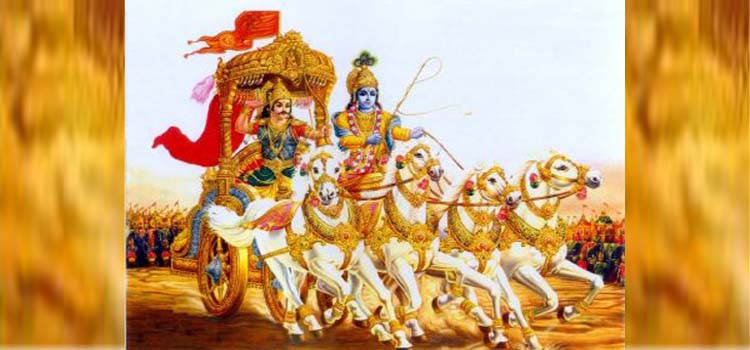What are some of the important life lessons from Mahabharata?
My thoughts and here is my take on the question:
1. Promises should be kept, but make sure they do not get outdated
The classic example for this is Pitamaha Bheeshma. Under one context of getting his father married to Satyavati, he took a vow of lifelong celibacy, but when the circumstances changed, he refused to change his stance, thereby earning the blame of indirectly leading to the great war.
2. There would be friends among your enemies
Everybody in the Kaurava clan was not against the Pandavas, for example Bheeshma, Drona and Vidura. Especially Vidura, who supported and guided the Pandavas wholeheartedly right from the day they came to the palace from the Rishyasringa forest as teenagers.
3. Try to be the best in your job
Yudhisthira learned different aspects of law and administration from Vidura, which prepared him to rule the kingdom later. In fact, when he was made the crown prince, he gained immense popularity among the subjects. There are instances of conversations between Yudhisthira and Vidura in the local dialects of the people, which proves that he was familiar with their commonplace practices instead of just confining himself within the walls of the palace.
4. Learn to learn, throughout your life
Keeping an open mind is an absolute essential for enriching oneself, as embodied by Arjuna. He was hardworking enough to learn the best of military science from Drona. Apart from that, during their Vanavas, he went to Indra’s court to learn about the different divine weapons, and also gained knowledge of the Pashupatastra from Mahadev. He was also a lifelong disciple of Yudhisthira and Krishna, learning from them the basic tenets of how to live your life.
5. Know exactly what belongs to you
The dice game teaches us what comprises “property”. Does the king really “own” his kingdom? Or is he just entrusted to taking care of it? This lays the fundamental question in democracy, regarding who the actual owner of the country is. Also, in our personal lives, do we really “own” our family members? Do we have the right to gamble them away like commodities?
6. Always develop lateral skills
The Pandavas proved it during their Agyatvas. They used their secondary skills in dice playing, cooking, dancing and singing, horse caring, and cattle rearing to their advantage during the year of staying incognito.
7. But…. it is hard to conceal yourself completely
The sole reason why Duryodhana got suspicious that the Pandavas were hiding in the Matsya kingdom was that the news of Kichaka’s death spread to the other kingdoms. Although no one knew that it was Bheema who killed Kichaka, given that Kichaka himself was a really able fighter, he could probably have been defeated only by a person having the physical prowess of Bheema.
8. Never underestimate anyone
Prince Uttar of Matsya underestimated Brihannala’s fighting skills as he was an eunuch, but ultimately he was responsible for saving the life of the young prince and fought the Pandava army valiantly.
9. Learn to recognize talent
An unarmed Krishna, with all his intellect and political knowledge is far better than several Akshauhinis of Narayani Sena. A friend providing good advice is always better than the one who buys expensive gifts for you each day.
10. Do your market research well
The Kurukshetra was is the earliest example of political coalition. The Pandavas, especially Krishna, were smart enough to recognize the enemies of Hastinapura and was successful in bringing all of them on their side during the war. Their primary support was the Panchala king as the Panchala-Kaurava feud had a long history. The king of Kashi also joined their side because of the way their princess Amba was treated by Bheeshma. Krishna, after defeating Jarasandha and his coterie, such as Shishupal etc, brought them on the side of the Pandavas. Long before the war, he was doing his part in destroying the unity of Jarasandha’s clan so that they can never get to join the Kaurava side in the war. In fact, Nakula got married to the Chedi princess Karenumati. Also, the decision of making Dhirshtadymna the commander-in-chief was highly tactical. Apart from being a very able fighter, he was also the brother of Draupadi, which helped in gelling the Pandavas well with the Panchalas.
11. Be properly trained for the job before plunging in
Abhimanyu proves this point. There is no need of showing valor and being a hero in public eyes without proper preparation. This would only lead to your defeat.
12. Sometimes smaller sacrifices have to made
When Ghatotkacha attacked the Kaurava army at night, Karna was forced to use his Ekaghni shakti, which he had originally saved for Arjuna. Ghatotkacha’s sacrifice had to make in order to save Arjuna’s life in the longer run.
13. Unity is the key
The five Pandava brothers were superbly united, so were the hundred Kauravas. This enabled to fight them as a cohesive unit.
14. Learn to respect your “enemies”
After Yudhisthira became king, he showed high respects to Dhritarashtra and Gandhari instead of scoffing them off as parents of his enemies. He used to take Dhritarashtra’s advice on different aspects of governance until the time the couple, along with Kunti, left for their Vanaprastha.
15. And lastly, rules are not set in stone
Krishna proves this repeatedly throughout the story by being a dynamic entity who tweaks many of the rules in order to establish Dharma, being good at his heart. This point is highly debatable, and establishes the fundamental difference between Krishna and Rama, the rule breaker and the rule upholder.




